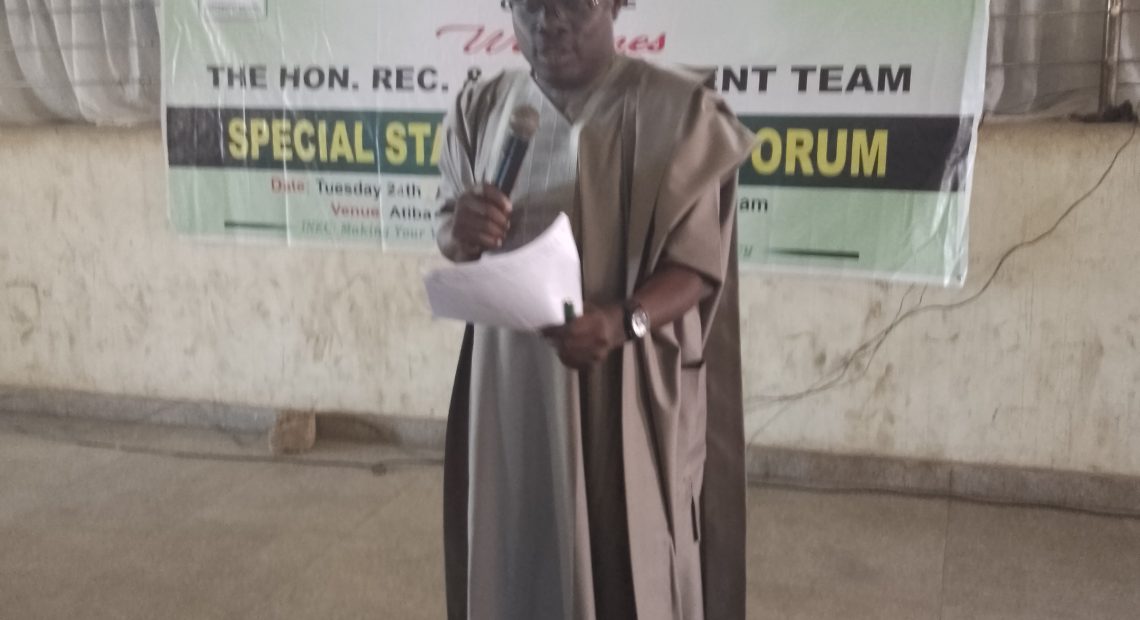

It has been discovered through the use of Automated Biometric Identification System, ABIS for the first and second quarters of the Continous Voters Registration, CVR that there are 45,187 valid printed PVCs out of the completed 78,000 registered voters.
The Resident Electoral Commissioner of the Independent National Electoral Commission, INEC in Oyo State, Dr Mutiu Agboke made this known at the stakeholders meeting on the last quarter of the CVR of Oyo/Ogbomoso zone at Oyo town.
He highlighted reasons for the electronic omission of some registrants’ data on the commission’s system to include: double registration, wrong belief that INEC system would not discover infractions, incomplete registration and complicit in facilitating sharp practices.
Dr Agboke confirmed that 42.3 percent of the completed registration were invalid and would not be included in the register of voters.
Dr Agboke, who stated that 756,307 Permanent Voter Cards, PVCs were yet to be collected in Oyo State, with Oyo/Ogbomoso zone having 143,375, urged stakeholders to mobilize electorate to collect the cards for them to elect or change representatives in government.
The REC also called on politicians, especially those in the ruling party to always attend stakeholders’ fora to be adequately informed about activities and technological innovations deployed by INEC for credible elections.
The State Director, National Orientation Agency, NOA, Mr. Kayode Odedokun represented by the Assistant Director NOA Afijio Local Government, Mrs Abidemi Adewale restated the agency’s commitment to sensitization of people at the grassroots for PVCs collection.
In an address, the INEC Electoral Officer, Oyo East, Mrs Oluyemisi Olubiyi reiterated that there was the need for voters to collect their PVCs to exercise their voting right.
Speaking on behalf of other security agencies, Oyo Area Commander, Mr. Kamid Madayi represented by the Deputy Area Commander, Mr. Elijah Adekunle said security cameras would be installed around the polling units to detect electoral frauds.
While explaining how the BVAS operates, the head of INEC ICT unit, Mrs Wumi Balogun explained that the machine had put an end to multiple voting and would not disenfranchise any voter as it performs dual purpose of fingerprint identification and facial biometric recognition for accreditation of voters, thus making it an improvement on the Smart Card Reader used in 2019 general elections.
Sherifdeen Nazrudeen